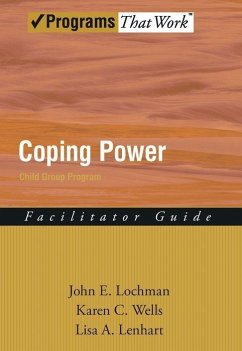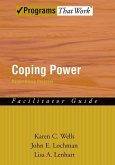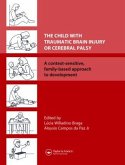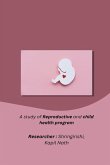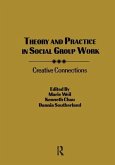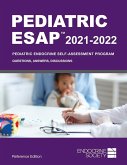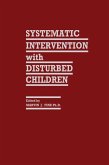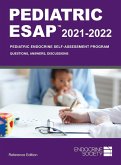- Broschiertes Buch
- Merkliste
- Auf die Merkliste
- Bewerten Bewerten
- Teilen
- Produkt teilen
- Produkterinnerung
- Produkterinnerung
This program deals with behavioural problems in pre-adolescent children, concentrating on children who are beginning to show signs of severe aggression amd social dysfunction at school.
Andere Kunden interessierten sich auch für
![Coping Power Parent Group Program (Facilitator Guide) Coping Power Parent Group Program (Facilitator Guide)]() Karen C WellsCoping Power Parent Group Program (Facilitator Guide)64,99 €
Karen C WellsCoping Power Parent Group Program (Facilitator Guide)64,99 €![The Child with Traumatic Brain Injury or Cerebral Palsy The Child with Traumatic Brain Injury or Cerebral Palsy]() Lucia Willadino-Braga (ed.)The Child with Traumatic Brain Injury or Cerebral Palsy200,99 €
Lucia Willadino-Braga (ed.)The Child with Traumatic Brain Injury or Cerebral Palsy200,99 €![A study of Reproductive and child health program A study of Reproductive and child health program]() Shringirishi Kapil Nath RA study of Reproductive and child health program31,99 €
Shringirishi Kapil Nath RA study of Reproductive and child health program31,99 €![Theory and Practice in Social Group Work Theory and Practice in Social Group Work]() Kenneth L ChauTheory and Practice in Social Group Work64,99 €
Kenneth L ChauTheory and Practice in Social Group Work64,99 €![Pediatric ESAP 2021-2022 Pediatric Endocrine Self-Assessment Program Questions, Answers, Discussions Pediatric ESAP 2021-2022 Pediatric Endocrine Self-Assessment Program Questions, Answers, Discussions]() Liuska M PescePediatric ESAP 2021-2022 Pediatric Endocrine Self-Assessment Program Questions, Answers, Discussions186,99 €
Liuska M PescePediatric ESAP 2021-2022 Pediatric Endocrine Self-Assessment Program Questions, Answers, Discussions186,99 €![Systematic Intervention with Disturbed Children Systematic Intervention with Disturbed Children]() Systematic Intervention with Disturbed Children41,99 €
Systematic Intervention with Disturbed Children41,99 €![Pediatric ESAP 2021-2022 Pediatric Endocrine Self-Assessment Program Questions, Answers, Discussions Pediatric ESAP 2021-2022 Pediatric Endocrine Self-Assessment Program Questions, Answers, Discussions]() Pediatric ESAP 2021-2022 Pediatric Endocrine Self-Assessment Program Questions, Answers, Discussions208,99 €
Pediatric ESAP 2021-2022 Pediatric Endocrine Self-Assessment Program Questions, Answers, Discussions208,99 €-
-
-
This program deals with behavioural problems in pre-adolescent children, concentrating on children who are beginning to show signs of severe aggression amd social dysfunction at school.
Hinweis: Dieser Artikel kann nur an eine deutsche Lieferadresse ausgeliefert werden.
Hinweis: Dieser Artikel kann nur an eine deutsche Lieferadresse ausgeliefert werden.
Produktdetails
- Produktdetails
- Verlag: Oxford University Press
- Seitenzahl: 290
- Erscheinungstermin: 1. März 2008
- Englisch
- Abmessung: 254mm x 178mm x 16mm
- Gewicht: 550g
- ISBN-13: 9780195327878
- ISBN-10: 019532787X
- Artikelnr.: 23576376
- Herstellerkennzeichnung
- Libri GmbH
- Europaallee 1
- 36244 Bad Hersfeld
- gpsr@libri.de
- Verlag: Oxford University Press
- Seitenzahl: 290
- Erscheinungstermin: 1. März 2008
- Englisch
- Abmessung: 254mm x 178mm x 16mm
- Gewicht: 550g
- ISBN-13: 9780195327878
- ISBN-10: 019532787X
- Artikelnr.: 23576376
- Herstellerkennzeichnung
- Libri GmbH
- Europaallee 1
- 36244 Bad Hersfeld
- gpsr@libri.de
* 1: Introductory Information for Child Group Facilitators
* 2: Child Group Logistics
* Coping Power Child Program: Year 1
* 3: Session 1: Group Structure and Behavioral Goal Setting Procedure
* 4: Session 2: Goal Setting - Part I
* 5: Session 3: Goal Setting - Part II
* 6: Session 4: Organizational and Study Skills
* 7: Session 5: Awareness of Feelings and Physiological Arousal Related
to Anger - Part I
* 8: Session 6: Awareness of Feelings and Physiological Arousal Related
to Anger - Part II
* 9: Session 7: Anger and Self-Control
* 10: Session 8: Using Self-Statements for Anger Coping - Part 1
* 11: Session 9: Using Self-Statements for Anger Coping - Part II
* 12: Session 10: Using Self-Statements for Anger Coping - Part III
* 13: Session 11: Relation and Overcoming Barriers to Self-Control
* 14: Session 12: Perspective Taking - Part I
* 15: Session 13: Perspective Taking - Part II
* 16: Session 14: Perspective Taking - Part III
* 17: Session 15: Perspective Taking and Problem Solving
* 18: Session 16: Social Problem Solving - Part I
* 19: Session 17: Social Problem Solving - Part II
* 20: Session 18: Social Problem Solving - Part III
* 21: Session 19: Social Problem Solving - Part IV
* 22: Session 20: Group Creates Videotape - Part I
* 23: Session 21: Group Creates Videotape - Part II
* 24: Session 22: Group Creates Videotape - Part III
* Coping Power Program: Year 2
* 25: Session 23: Review from Previous Year
* 26: Session 24: Organizational and Study Skills Review
* 27: Session 25: Application of Social Problem Solving to Teacher
Conflict
* 28: Session 26: Application of Social Problem Solving to Both Making
Friends and Being Friends With Others
* 29: Session 27: Application of Social Problem Solving to Group Entry
and Negotiation With Peers
* 30: Session 28: Sibling Conflict and Problem Solving
* 31: Session 29: Application of Social Problem Solving to Peer
Pressure
* 32: Session 30: Refusal Skills
* 33: Session 31: Problem Solving About Neighbourhood Problems, Deviant
Peer Groups, and Centrality of Group Membership
* 34: Session 32: Group Creates Peer Pressure Poster
* 35: Session 33: Positive Quality Development and Peer Relationships
* 36: Session 34: Review and Termination of the Coping Power Program
* 37: End of the Year Party
* 2: Child Group Logistics
* Coping Power Child Program: Year 1
* 3: Session 1: Group Structure and Behavioral Goal Setting Procedure
* 4: Session 2: Goal Setting - Part I
* 5: Session 3: Goal Setting - Part II
* 6: Session 4: Organizational and Study Skills
* 7: Session 5: Awareness of Feelings and Physiological Arousal Related
to Anger - Part I
* 8: Session 6: Awareness of Feelings and Physiological Arousal Related
to Anger - Part II
* 9: Session 7: Anger and Self-Control
* 10: Session 8: Using Self-Statements for Anger Coping - Part 1
* 11: Session 9: Using Self-Statements for Anger Coping - Part II
* 12: Session 10: Using Self-Statements for Anger Coping - Part III
* 13: Session 11: Relation and Overcoming Barriers to Self-Control
* 14: Session 12: Perspective Taking - Part I
* 15: Session 13: Perspective Taking - Part II
* 16: Session 14: Perspective Taking - Part III
* 17: Session 15: Perspective Taking and Problem Solving
* 18: Session 16: Social Problem Solving - Part I
* 19: Session 17: Social Problem Solving - Part II
* 20: Session 18: Social Problem Solving - Part III
* 21: Session 19: Social Problem Solving - Part IV
* 22: Session 20: Group Creates Videotape - Part I
* 23: Session 21: Group Creates Videotape - Part II
* 24: Session 22: Group Creates Videotape - Part III
* Coping Power Program: Year 2
* 25: Session 23: Review from Previous Year
* 26: Session 24: Organizational and Study Skills Review
* 27: Session 25: Application of Social Problem Solving to Teacher
Conflict
* 28: Session 26: Application of Social Problem Solving to Both Making
Friends and Being Friends With Others
* 29: Session 27: Application of Social Problem Solving to Group Entry
and Negotiation With Peers
* 30: Session 28: Sibling Conflict and Problem Solving
* 31: Session 29: Application of Social Problem Solving to Peer
Pressure
* 32: Session 30: Refusal Skills
* 33: Session 31: Problem Solving About Neighbourhood Problems, Deviant
Peer Groups, and Centrality of Group Membership
* 34: Session 32: Group Creates Peer Pressure Poster
* 35: Session 33: Positive Quality Development and Peer Relationships
* 36: Session 34: Review and Termination of the Coping Power Program
* 37: End of the Year Party
* 1: Introductory Information for Child Group Facilitators
* 2: Child Group Logistics
* Coping Power Child Program: Year 1
* 3: Session 1: Group Structure and Behavioral Goal Setting Procedure
* 4: Session 2: Goal Setting - Part I
* 5: Session 3: Goal Setting - Part II
* 6: Session 4: Organizational and Study Skills
* 7: Session 5: Awareness of Feelings and Physiological Arousal Related
to Anger - Part I
* 8: Session 6: Awareness of Feelings and Physiological Arousal Related
to Anger - Part II
* 9: Session 7: Anger and Self-Control
* 10: Session 8: Using Self-Statements for Anger Coping - Part 1
* 11: Session 9: Using Self-Statements for Anger Coping - Part II
* 12: Session 10: Using Self-Statements for Anger Coping - Part III
* 13: Session 11: Relation and Overcoming Barriers to Self-Control
* 14: Session 12: Perspective Taking - Part I
* 15: Session 13: Perspective Taking - Part II
* 16: Session 14: Perspective Taking - Part III
* 17: Session 15: Perspective Taking and Problem Solving
* 18: Session 16: Social Problem Solving - Part I
* 19: Session 17: Social Problem Solving - Part II
* 20: Session 18: Social Problem Solving - Part III
* 21: Session 19: Social Problem Solving - Part IV
* 22: Session 20: Group Creates Videotape - Part I
* 23: Session 21: Group Creates Videotape - Part II
* 24: Session 22: Group Creates Videotape - Part III
* Coping Power Program: Year 2
* 25: Session 23: Review from Previous Year
* 26: Session 24: Organizational and Study Skills Review
* 27: Session 25: Application of Social Problem Solving to Teacher
Conflict
* 28: Session 26: Application of Social Problem Solving to Both Making
Friends and Being Friends With Others
* 29: Session 27: Application of Social Problem Solving to Group Entry
and Negotiation With Peers
* 30: Session 28: Sibling Conflict and Problem Solving
* 31: Session 29: Application of Social Problem Solving to Peer
Pressure
* 32: Session 30: Refusal Skills
* 33: Session 31: Problem Solving About Neighbourhood Problems, Deviant
Peer Groups, and Centrality of Group Membership
* 34: Session 32: Group Creates Peer Pressure Poster
* 35: Session 33: Positive Quality Development and Peer Relationships
* 36: Session 34: Review and Termination of the Coping Power Program
* 37: End of the Year Party
* 2: Child Group Logistics
* Coping Power Child Program: Year 1
* 3: Session 1: Group Structure and Behavioral Goal Setting Procedure
* 4: Session 2: Goal Setting - Part I
* 5: Session 3: Goal Setting - Part II
* 6: Session 4: Organizational and Study Skills
* 7: Session 5: Awareness of Feelings and Physiological Arousal Related
to Anger - Part I
* 8: Session 6: Awareness of Feelings and Physiological Arousal Related
to Anger - Part II
* 9: Session 7: Anger and Self-Control
* 10: Session 8: Using Self-Statements for Anger Coping - Part 1
* 11: Session 9: Using Self-Statements for Anger Coping - Part II
* 12: Session 10: Using Self-Statements for Anger Coping - Part III
* 13: Session 11: Relation and Overcoming Barriers to Self-Control
* 14: Session 12: Perspective Taking - Part I
* 15: Session 13: Perspective Taking - Part II
* 16: Session 14: Perspective Taking - Part III
* 17: Session 15: Perspective Taking and Problem Solving
* 18: Session 16: Social Problem Solving - Part I
* 19: Session 17: Social Problem Solving - Part II
* 20: Session 18: Social Problem Solving - Part III
* 21: Session 19: Social Problem Solving - Part IV
* 22: Session 20: Group Creates Videotape - Part I
* 23: Session 21: Group Creates Videotape - Part II
* 24: Session 22: Group Creates Videotape - Part III
* Coping Power Program: Year 2
* 25: Session 23: Review from Previous Year
* 26: Session 24: Organizational and Study Skills Review
* 27: Session 25: Application of Social Problem Solving to Teacher
Conflict
* 28: Session 26: Application of Social Problem Solving to Both Making
Friends and Being Friends With Others
* 29: Session 27: Application of Social Problem Solving to Group Entry
and Negotiation With Peers
* 30: Session 28: Sibling Conflict and Problem Solving
* 31: Session 29: Application of Social Problem Solving to Peer
Pressure
* 32: Session 30: Refusal Skills
* 33: Session 31: Problem Solving About Neighbourhood Problems, Deviant
Peer Groups, and Centrality of Group Membership
* 34: Session 32: Group Creates Peer Pressure Poster
* 35: Session 33: Positive Quality Development and Peer Relationships
* 36: Session 34: Review and Termination of the Coping Power Program
* 37: End of the Year Party

